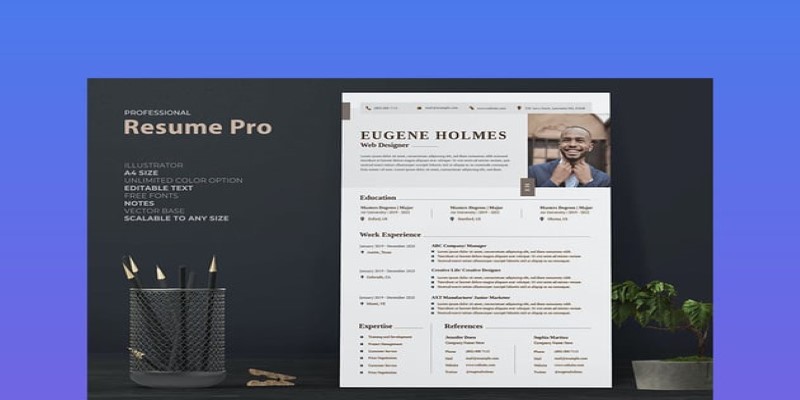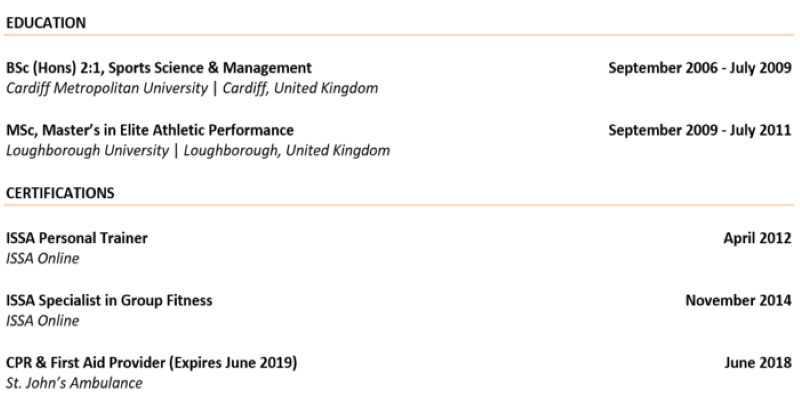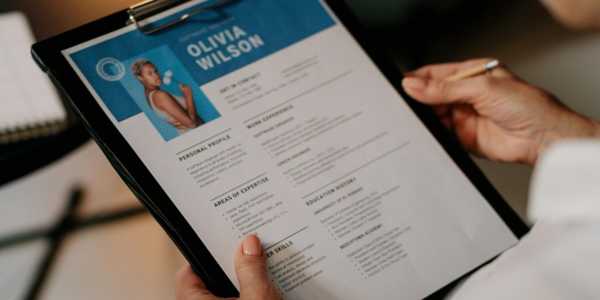Why Isn’t Your Resume Getting You Interviews? Let’s Change That
You've sent out dozens, maybe hundreds, of resumes. And yet, your inbox is quieter than a library on a Sunday morning. No callbacks, no emails, no interview invites. Frustrating, right?
Here’s the truth: building a resume isn't about listing every job you've ever had and hoping for the best. It's about strategy. It's about presentation. It's about understanding what hiring managers want to see—and giving it to them in seconds. Because that’s about how long you’ve got before your resume is tossed aside.
So, if you're tired of being ghosted by hiring teams, let's break this down and fix what's broken.
It Starts With a Sharp Summary (Not a Fluffy One)
Forget the vague "goal-oriented professional seeking growth opportunities." That's filler, and hiring managers see through it instantly. Instead, your resume should begin with a concise and professional summary that highlights who you are, your key strengths, and how you can contribute to solving a company's problems.
Think of it like your elevator pitch—only shorter. Aim for three crisp lines that highlight your experience, expertise, and impact.
For example:
“Marketing strategist with 6+ years of experience in digital campaigns, brand development, and lead generation. Known for increasing online engagement by 40% and doubling client conversion rates. Skilled in data-driven strategy, team leadership, and cross-platform promotion.”
It’s specific. It’s measurable. It shows value right away.
Tailoring Is Non-Negotiable
If you're sending the same resume to 20 different companies, you're doing it wrong.
Recruiters can tell when your resume is generic. And so can applicant tracking systems (ATS). These bots are trained to look for role-specific keywords—and if your resume doesn’t speak the same language as the job description, it’s game over before a human even sees your name.
What to do? Study the job ad. Highlight the skills and experiences that matter most to them. Then—without copying it word for word—make sure your resume reflects those priorities.
Say you're applying for a data analyst role. If the listing states "experience with SQL, Tableau, and business intelligence reporting," and your resume lists "analyzed data," that won't be sufficient. Be specific. Match the phrasing where it makes sense. Every job deserves a version of your resume that feels customized.
Your Experience Section Shouldn’t Read Like a Job Description
This one’s big. Too many resumes just list responsibilities: “Managed social media accounts,” “Oversaw team meetings,” “Filed monthly reports.”
That’s not enough. Recruiters care about results, not just duties.
Use bullet points to show what you did and what happened because of it. Did you grow followers? Streamline operations? Save money or time? Quantify it if possible. Numbers draw the eye and prove your impact.
Here’s the difference:
“Managed email marketing campaigns.”
“Managed and optimized email marketing campaigns, increasing open rates by 22% and click-through rates by 12% in six months.”
See how the second one tells a story? Always aim for that.
Design Like a Pro (But Keep It Simple)

Good design doesn't mean colourful borders and fancy fonts. It means readability. It means a clean layout, consistent formatting, and intuitive organization.
Use clear section headers, such as "Professional Summary," "Skills," "Experience," and "Education." Stick to standard fonts like Arial, Calibri, or Helvetica. Keep it one page (two only if you have over 10 years of relevant experience). And use white space generously—cramming too much text makes recruiters' eyes glaze over.
Also, avoid using text boxes, graphics, or unusual file types. ATS systems can't always read those elements correctly. A plain Word doc or PDF with basic formatting will serve you much better.
Let Your Skills Section Speak To The Role
Yes, you should list your skills. But make them count.
Instead of dumping every buzzword you’ve ever heard into one block, divide your skills into categories—like “Technical Skills,” “Soft Skills,” or “Tools & Platforms." Ensure that each one accurately reflects the requirements of the job you're applying for.
If you’re a project manager, don’t just say “communication.” Mention tools and methods—like “Agile methodology,” “JIRA,” or “Slack team coordination.” If you’re in IT, be clear about the systems you've worked on, such as "Linux Server Management," "AWS," and "Cisco Networking."
And again, relevance is everything. Don't list skills you haven't used in years or that are unrelated to the job.
Don’t Underestimate The Power Of Keywords
Keywords aren't just helpful—they're essential. Applicant tracking systems (used by most companies) scan your resume for these keywords to determine if you're qualified enough to be considered.
To get this right, identify keywords from the job description and naturally work them into your resume. You don't need to cram them in—you need to reflect the language the employer uses.
If the job ad mentions “cross-functional collaboration,” use that phrase if it applies to you. If they mention “budget forecasting,” and you’ve done it, say so. It’s not about gaming the system—it’s about aligning your language with theirs.
Your Education And Certifications: Keep It Clean And Relevant

Unless you're a recent graduate, your education section should be concise and brief.
List your degree(s), your major, the university name, and the year you graduated. That's it. There is no need to include high school unless it's your highest level of education. GPA? Only include it if it's a standout (usually 3.7 or higher) and you're early in your career.
Do certifications or ongoing training? Add them under a separate section titled "Certifications" or "Professional Development." This is especially important in fields such as IT, marketing, and finance, where industry tools and platforms are constantly evolving.
References? Don’t Include Them.
It's a small thing, but don't waste resume space with "References available upon request." Hiring managers know they can ask if they want them. Use that space for something more impactful—such as one more bullet highlighting your success.
Turning That Resume Into Interviews
A resume isn’t just a list—it’s your marketing tool. It’s the reason someone invites you in for a conversation or scrolls past to the next name in the pile.
Hiring managers don’t want more information. They want clarity. They want confidence. They want to know, within seconds, that you might be the person who can solve their problem.
So, take the time to refine your message. Focus on relevance. Show results. That's how you get your foot in the door—and that's how you land the interview that changes everything.





